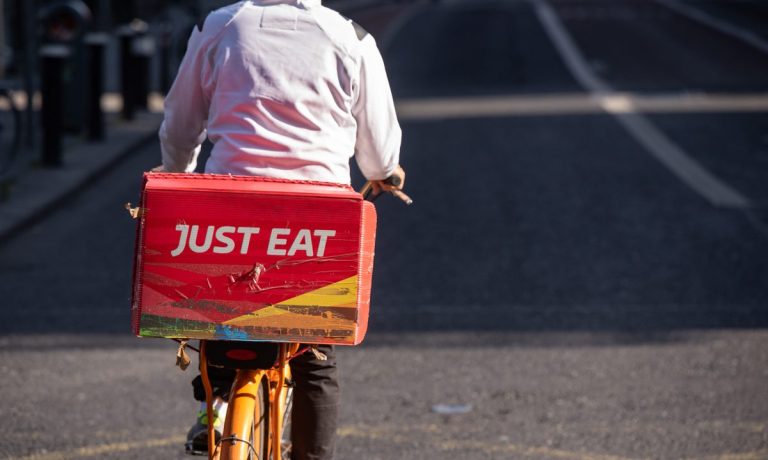Global Food Delivery Firms Restrategize to Focus on Home Turf

Retreating food delivery firms are counting on their home markets to keep them alive.
After years of ascendency and a pandemic-fueled bump in demand during 2020 and 2021, this year has been difficult for many food delivery platforms.
It all started when Germany’s Delivery Hero lost over 30% of its stock market valuation in February following underwhelming 2022 projections.
In the following months, Delivery Hero and its peers in the space continued their downward trajectory, reflecting wider market conditions and a decline in consumer spending.
Amsterdam-based company Just Eat Takeaway.com kicked off a wave of retreats by backing out of the Romanian and Portuguese markets this summer.
In August, things got even worse for the firm when it was forced to write down the value of its subsidiary, Grubhub, by over $3 billion. Barely a year after it completed its acquisition of the U.S. aggregator, Just Eat’s stateside business challenges have also left it considering the sale of the firm.
By fall, an industry that had up until this year been characterized by a growth-at-all-costs mentality found itself on the back foot.
In November, the U.K.’s Deliveroo exited the Australian market, shortly before withdrawing from the Netherlands after seven years of operating in the Dutch market.
And last month India’s Zomato shut up shop in the United Arab Emirates (UAE), redirecting its users to the Talabat app which will look into integrating with Zomato’s payment service, Zomato Pay.
Leveraging a Solid Consumer Base
In the race to keep their heads above water and keep investors interested, delivery firms are refocusing on more profitable markets which happen to be primarily their home bases.
For example, in a Q3 trading update in October, Deliveroo reported that while international gross transaction value (GTV) was down 3%, GTV was up 11% in its home market of the U.K. and Ireland (UKI) during the same period.
Better still for the company’s long-term prospects in the UKI market, interim CFO David Hancock told investors that Deliveroo has continued to grow its market share, adding that he was pleased with the “good performance in the U.K. and Ireland in what is admittedly a difficult consumer environment.”
Meanwhile, Zomato’s CEO Deepinder Goyal recently told shareholders that out of the over 1,000 mostly Indian towns and cities in which the company operates, 248 contribute over 90% of overall gross order value, an indication of the minimal effort required to make strides in its home market.
So, with consumers ordering fewer takeouts in the face of rising food prices and tighter household budgets, focusing on sound unit economics and doubling down on locations where they already have a solid customer base is appearing to be the ideal strategy for delivery aggregators hard hit by volatile global market forces.
For all PYMNTS EMEA coverage, subscribe to the daily EMEA Newsletter